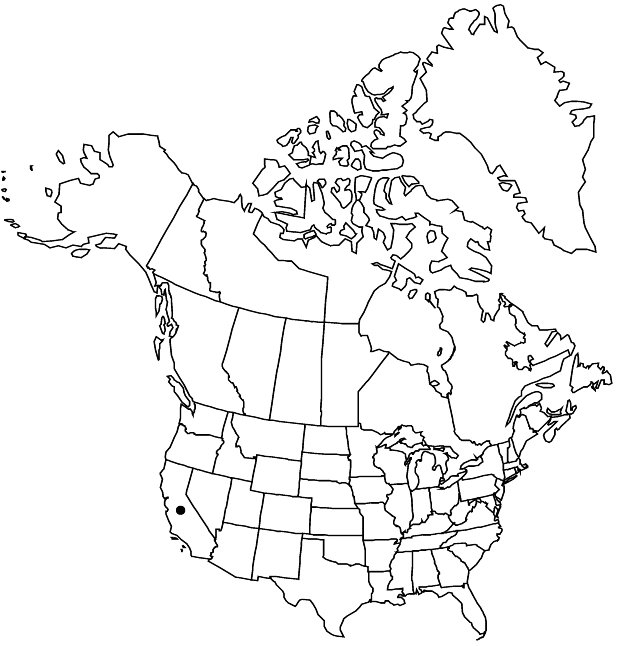Arctostaphylos gabilanensis
Madroño 51: 322, fig. 1. 2004 ,.
Shrubs or trees, erect, 1–5 m; burl absent; twigs sparsely short-hairy with sessile glands among hairs. Leaves: petiole 1–4 mm; blade gray-glaucous, dull, ovate, 1.5–3.5 × 1.1–2.4 cm, base distinctly lobed, auriculate-clasping, margins entire, plane, surfaces smooth, canescent, glabrescent. Inflorescences panicles, 1–4-branched; immature inflorescence pendent, branches spreading, axis 1–3 cm, 1+ mm diam., sparsely short-hairy with sessile glands among hairs; bracts not appressed, (spreading), scalelike (lowermost leaflike), deltate, 3–5 mm, (fleshy), apex mucronate, surfaces hairy. Pedicels 8–10 mm, hairy or glabrous. Flowers: corolla white to pink, conic to urceolate; ovary glabrous, (not viscid). Fruits globose, 10–15 mm diam., glabrous, (not viscid). Stones connate into single sphere. 2n = 26.
Phenology: Flowering winter–early spring.
Habitat: Chaparral on decomposing granites
Elevation: 300-700 m
Distribution

Calif.
Discussion
Of conservation concern.
Arctostaphylos gabilanensis is known from two disjunct populations in the Gabilan Mountains, San Benito and Monterey counties.
Selected References
None.